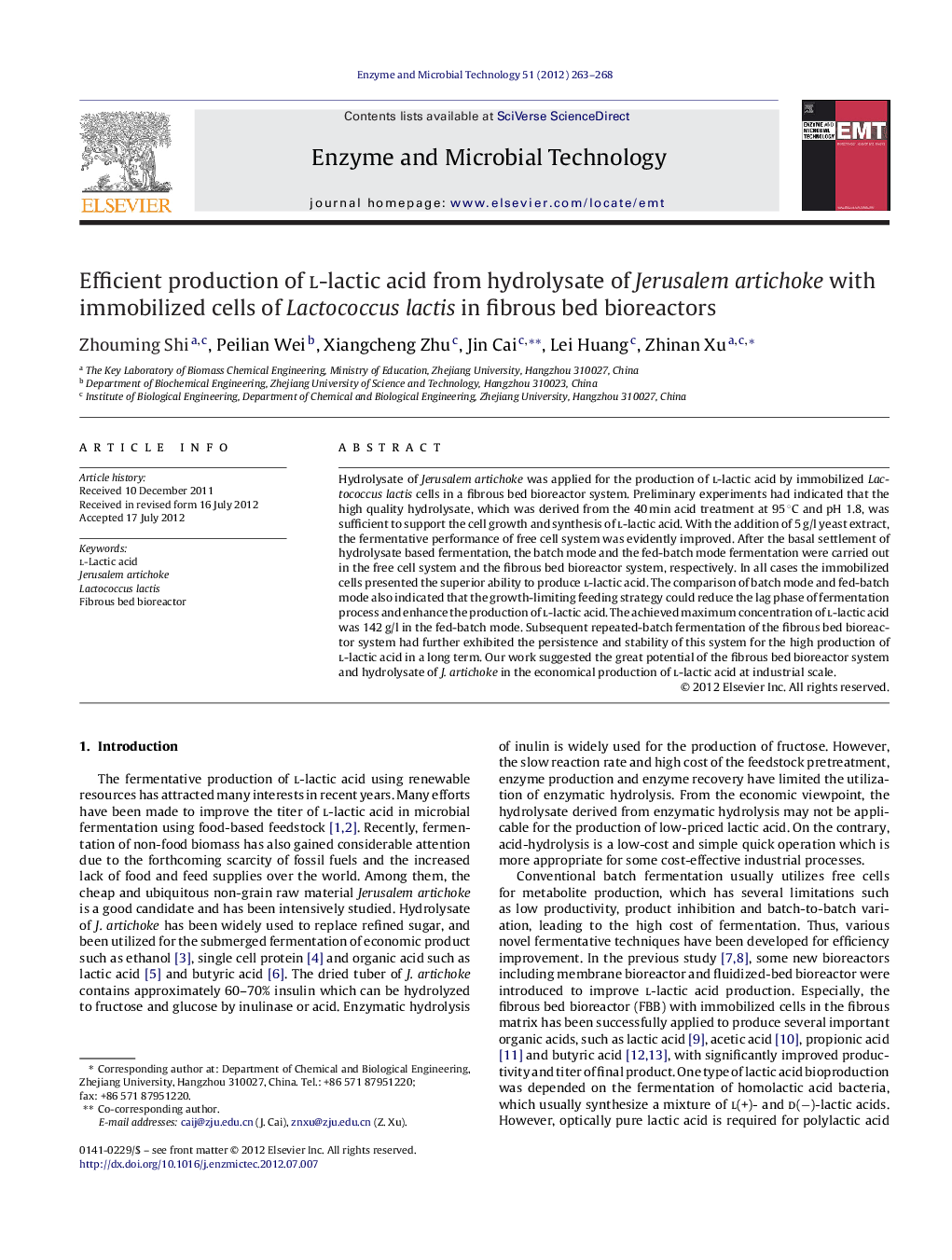| Article ID | Journal | Published Year | Pages | File Type |
|---|---|---|---|---|
| 17215 | Enzyme and Microbial Technology | 2012 | 6 Pages |
Hydrolysate of Jerusalem artichoke was applied for the production of l-lactic acid by immobilized Lactococcus lactis cells in a fibrous bed bioreactor system. Preliminary experiments had indicated that the high quality hydrolysate, which was derived from the 40 min acid treatment at 95 °C and pH 1.8, was sufficient to support the cell growth and synthesis of l-lactic acid. With the addition of 5 g/l yeast extract, the fermentative performance of free cell system was evidently improved. After the basal settlement of hydrolysate based fermentation, the batch mode and the fed-batch mode fermentation were carried out in the free cell system and the fibrous bed bioreactor system, respectively. In all cases the immobilized cells presented the superior ability to produce l-lactic acid. The comparison of batch mode and fed-batch mode also indicated that the growth-limiting feeding strategy could reduce the lag phase of fermentation process and enhance the production of l-lactic acid. The achieved maximum concentration of l-lactic acid was 142 g/l in the fed-batch mode. Subsequent repeated-batch fermentation of the fibrous bed bioreactor system had further exhibited the persistence and stability of this system for the high production of l-lactic acid in a long term. Our work suggested the great potential of the fibrous bed bioreactor system and hydrolysate of J. artichoke in the economical production of l-lactic acid at industrial scale.
► High yield of sugars from Jerusalem artichoke was obtained using mild acid treatment. ► JA hydrolysate could support the high level production of lactic acid in FBB. ► Immobilization of Lactococcus lactis greatly improved the lactic acid productivity.
